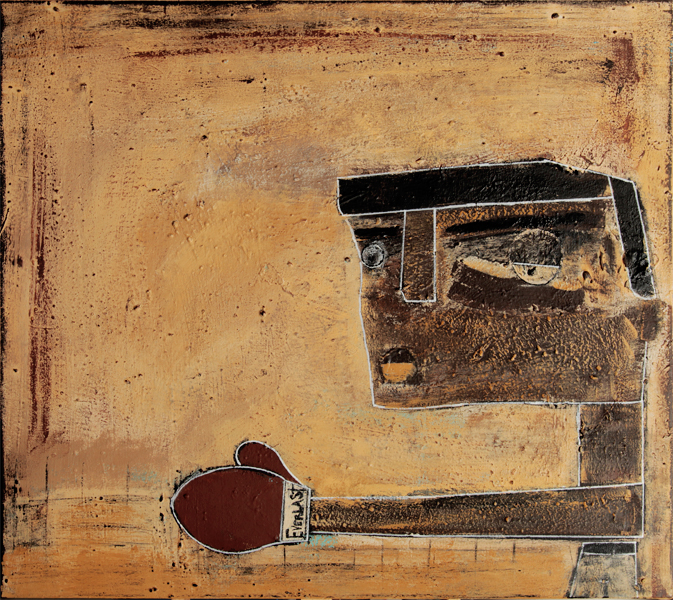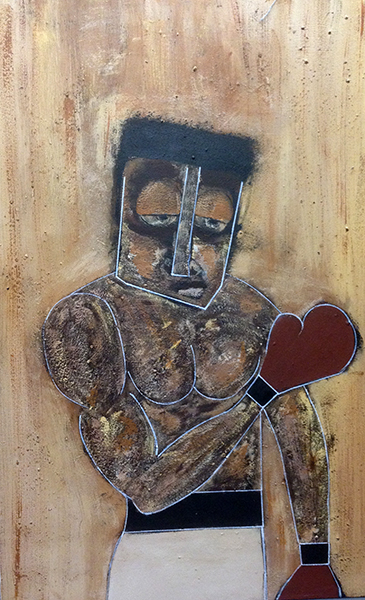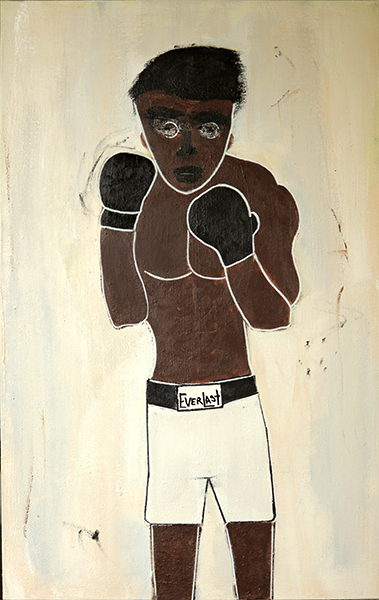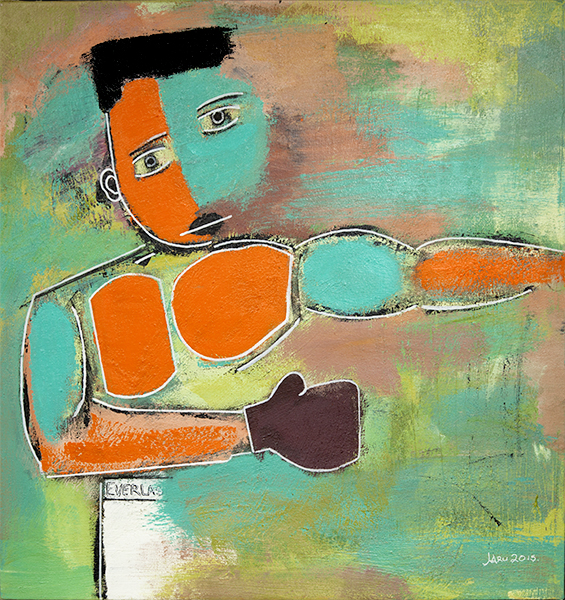WORDS: Yahdon Israel PHOTOGRAPHY: Julien Roubinet
Two months ago the world lost Muhammad Ali, one of our greatest cultural icons and fiercest fighters. Inside the ring Ali's exploits won him numerous belts and titles, but it was the things he did after the last bell that made him the People's Champ. Whether it was making Ernie Terrell acknowledge Ali by the name he had chosen for himself or refusing to fight in the Vietnam War, Muhammad Ali taught those of us who admired him, no matter the opponent, integrity, dignity and self-respect were worth fighting for.
Independent street artist Parris Jaru internalized this lesson, allowing it to be the guiding principle in his painting as well as his personhood. When Parris was 18, he was hired to work at Marvel Comics as a letterer and colorist. For four years he enlarged and reduced the comics—going in on weekends, committing to twelve hour work days. All because he loved his job. But sometimes the things we love can lead us to a dead end.
This is what Parris discovered after he came to the conclusion that he was only going to work for himself. The decision for Parris hasn't been easy, but it's worth it. We visited Parris at his home in Bedford-Stuyvesant where he talked about his first make, why he commemorated Muhammad Ali with a painting series, and the incomparable value of being an independent artist.
What was the first thing you remember making?
We learned how to draw faces from the word boy. But the whole thing is, it’s not the figure bro; it’s the beginning. The most basic thing of learning how to do a figure is from the focal point. We all start from different places, but for me it was the word, "boy."
Why do you make what you make?
I think I've been chosen to be a creator. That's the simplest form of how I can explain it. Whether it's abstract, words, or symbols, it's creating because I'm starting with a blank canvas. Like life itself.
No matter how much we think we know in life we become a blank canvas when we learn something different. I come from a family of creators. Everyone made something because we didn't have the money to buy something that already existed. We had to make our own.
How do you decide what you'll make?
I've always viewed art as medicinal. So before it used to be really off the top. I didn't know what I was doing when I sat down. I only felt inspired to get something out.
I follow more of a series, now. I had and still have gallery interest, but they want to see consistency. But the challenge as an artist is finding that consistency without becoming repetitive or stagnant.
An artistic death occurs when you force yourself to do the same piece over and over again. The purpose of art is to keep it moving, to re-discover, re-imagine. That's what life is. That being said, I started doing more series-oriented work to build texture to conversations I want to have over a period of time and see how they develop.
What made you decide to become an independent street artist?
When I was 18, I got a job at Marvel, enlarging and reducing the comics. I worked there for four years. I had my own office. I was writing some of the graphic novel ideas, submitting stories, lettering. I did everything. I used to go in on weekends, stay twelve hours a day sometimes because I loved it so much.
This one Christmas I got a bonus. We always got bonuses but this one had like three checks in one. Being young and super naive, I thought they gave me all that money because I worked so hard. Long story short it was a mistake.
After that point I said to myself, I will only work for me. I'm not going to sacrifice any of my spare time for anyone else but me. It's not the most lucrative thing but I'm free enough to express myself through my art in any country I go to and I don't have to worry about anyone's mistakes but my own.
Tell us about the Muhammad Ali series.
Well all the paintings in the series symbolize the kids coming up with dreams of being an Ali. He didn't just symbolize somebody who can knock you out. He symbolized somebody who stood strong against the system and oppression. He represented the black race as a warrior. "Lightweight," in particular, for me, represents Ali as a child. The Ali in other children. That's the reason why I made his eyes so wide. I wanted to show that he had those dreams of being a champion on his own terms.
Who or what was it that like first inspired you to like start to be creative?
My grandmother had this huge Victorian era painting of pirates. I used to get real close to the painting and just stare at it. It had these little, little, tiny people with these little dots and brush strokes of color and I was always amazed by how the artist made that look like a person with a hat on. That attention to detail really inspired me.
If there was something you'd wish you would've known sooner as an artist what would it be?
If I would have known sooner to believe in myself. I wasn't taught that. You're not taught that in school. You're not taught that ever. You can literally create your reality. I didn't have anybody saying, "You can control your destiny on some level. You can reinvent yourself. You can stumble and get back up a thousand times in a lifetime, it's okay".
Failure is an option and it's not an option because where there's failure there is success. It's all in how you interpret things. You just have to judge how you want to do things.
What was one of your most meaningful mistakes?
A mistake that I used to make was trying to make art. When I started to realize I'm trying too hard and decided to put out what's inside of me, everything became so much easier. I used to waste so much materials trying. When I decided to just really flow with it things would go much smoother.
What was the last thing you made?
These two abstract paintings that's continuing a series I began a few years ago that uses minimal composition to accentuate line and form.
What do you feel that you need to continue making?
Sponsorship. I mean really for somebody to understand what I'm doing both here and abroad.
I’ve gone to many different countries to practice art and the one thing I’ve noticed is if you travel to other countries with that first world mind, you limit yourself in what you can contribute to a community. Not going in there to take but to give. That's what's most important: what we leave behind.
Like Bob Marley said when he was asked why he fed poor people, "My life is for you. How could I exist if I didn't? My life is not for me." I feel the same way. My purpose in life is to share as much of myself and my work with the world as possible. There's freedom in that.
About MakersFinders
MakersFinders is a social platform that helps people share and sell what they make and find what they love.
We have an app in private beta. We publish stories. We host events. And provide quarterly grants for our community of Makers and Finders.























